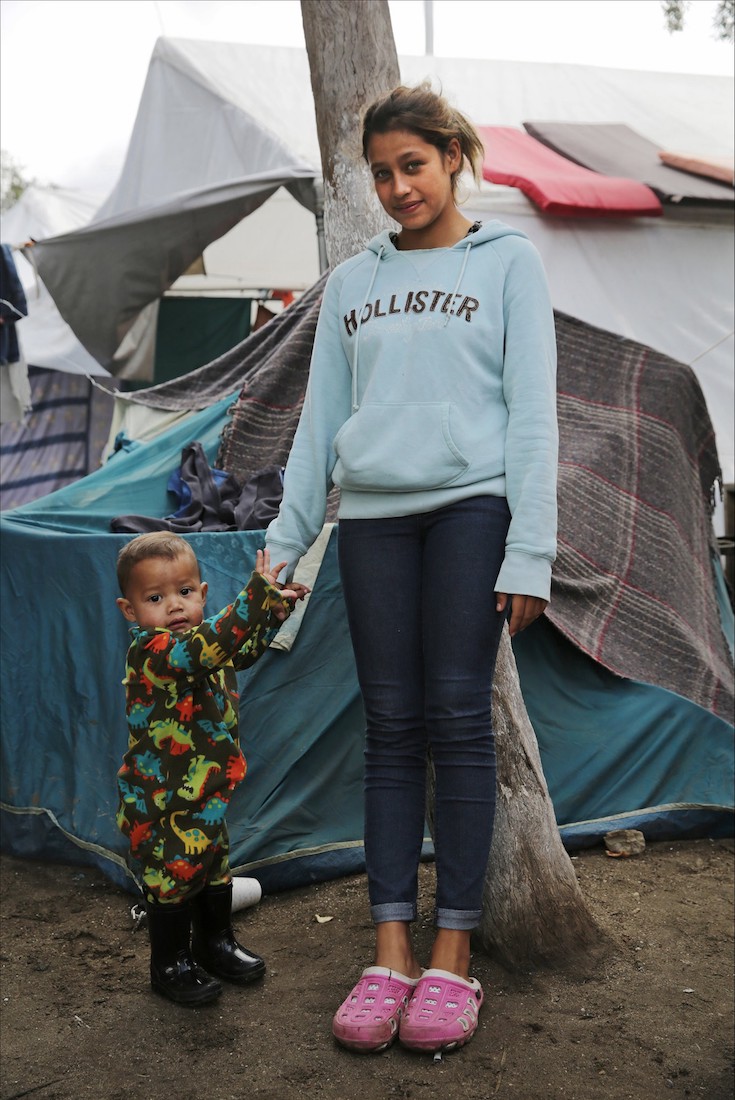Maeli, 17, said she joined the caravan with her young son because she feared for their safety in Honduras. They’ve been largely met with kindness on the long journey north, but things have been tense in Tijuana. She and other migrants had been staying in a makeshift camp on the beach when a crowd of local residents threw stones at them. She and the child later moved to the another camp. Featured Image
[dropcap]Has[/dropcap] any other word in 2018 been as responsible for so much as “caravan”?
By definition, a caravan is a company of people traveling through a hostile region. You travel in a caravan for protection. When you feel powerless, traveling in a group gives you some sense of power. But there is no protecting the caravan of migrants who have journeyed to Donald Trump’s America. [mc4wp_form id=”6042″]
 Junior sat with his mother, Maria, behind him in front of a police blockade during a migrant protest. His father was said to have been killed by by the maras, or gangs, in Honduras. Image Credit
Junior sat with his mother, Maria, behind him in front of a police blockade during a migrant protest. His father was said to have been killed by by the maras, or gangs, in Honduras. Image CreditMaeli, 17, said she joined the caravan with her young son because she feared for their safety in Honduras. They’ve been largely met with kindness on the long journey north, but things have been tense in Tijuana. She and other migrants had been staying in a makeshift camp on the beach when a crowd of local residents threw stones at them. She and the child later moved to the another camp.
To President Trump and his supporters, a caravan is made up of invaders and criminals. A caravan carries drugs and diseases. A caravan must be stopped at all costs, even if it means shutting down the United States government.
As a word, “caravan” is a politically expedient bludgeon, part of a decades-long project started by anti-immigrant groups (NumbersUSA, Center for Immigration Studies and Federation for American Immigration Reform, to name a few) using dehumanizing vocabulary to describe immigrants in nefarious, fear-inducing ways. “Illegal aliens” having “anchor babies” arriving in a “caravan.” At its most effective, this is language as a barrier. It says: “You’re an alien — you’re nothing like me.” It’s also a source of misinformation, as it is not illegal to apply for asylum. This is language as a weapon.


You must be logged in to post a comment.